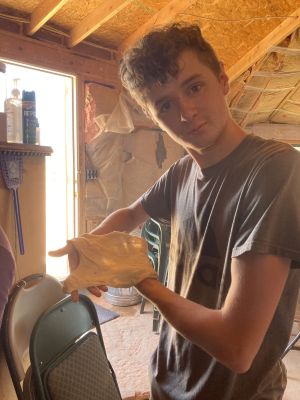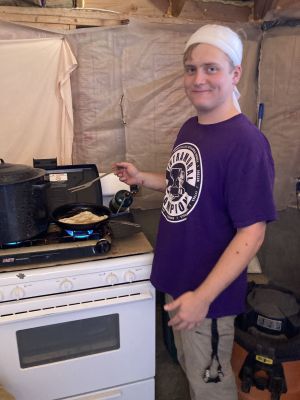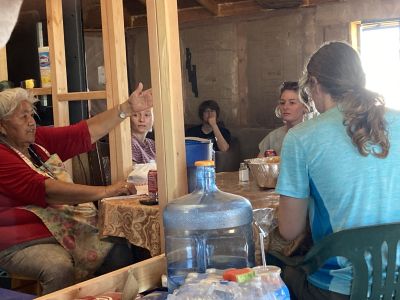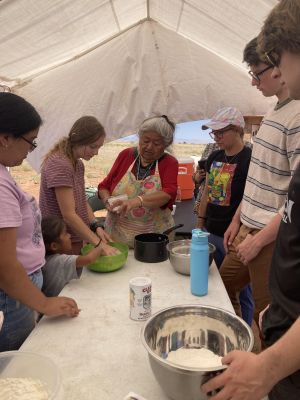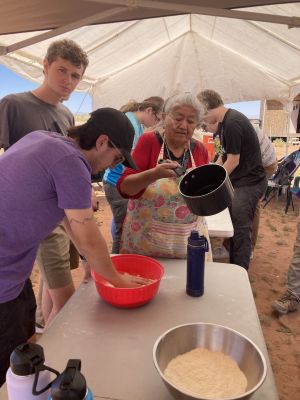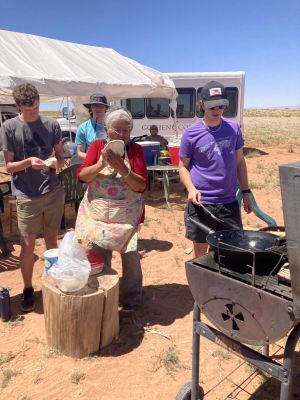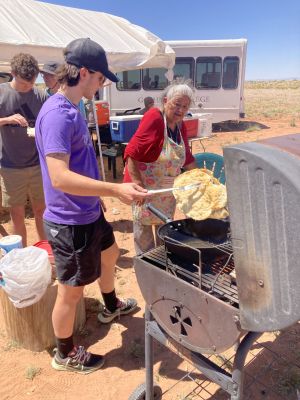Alex Koscher shares his thoughts about the hospitality our group has received during our time in the Navajo Nation, contrasting it to what he encountered while stopping for lunch on the way to Grand Canyon National Park:
Hospitality has often been a key feature within Indigenous culture. Over the past few weeks, this trip has accentuated the aspect of hospitality within Indigenous cultures. Rather than a single experience of hospitality, over the past few weeks we’ve been graciously welcomed into the homes of strangers, and fed with open arms. Barsine Onyenedo, our language Immersion instructor, introduced us to her mother who gave a prime example of this hospitality.
Early one morning we were immersed with Barsine’s mother, Priscilla Chee, as she discussed culture and language within the Navajo context. And after a few hours of discussion, we were led into the world of fry bread. We’d encountered fry bread within the previous weeks, a delicious concoction of flour, water, and salt deep-fried into a crispy layer of dough.
This time around, Priscilla taught us herself how to make the bread. As she welcomed us into her halfway-renovated home to cook fry bread and stew, she wasn’t worried about cleaning up or if her curtains were aside, rather, her main concern was if we had enough chairs, and if we would eat all of the fry bread that we had made. Priscilla’s hospitality was conveyed through a consistent worry for our well being and hunger. Her hospitality was unmatched in this way.
And yet in comparison, an interaction that we had in a Subway restaurant two days later, contrasts this experience on another level. As we were eating, what we could imagine was a homeless man walked in and asked for money to buy food and and a drink. My immediate response was to apologize for not having any money on hand to spare. The heat seemed unbearable this time of year, ranging from low to high nineties on a good day. And so the reality of dehydration and hunger was extremely real. Yet this idea of hospitality lingers within the back of my mind.
As the man went up to the counter at Subway to ask for a cup of water, he was met with a quick dismissal and a lack of hospitality. The employees shooed him away, saying that he could get a drink from the soda fountain if he was quick. It seemed the gracious thing to do, however the man’s attempt to ease his thirst was met with failure. Our peer Lukas had offered him his own cup to drink out of, but the fountain was shut off as soon as he had reached it. It was hard to imagine that one of the employees would be so cruel. We wondered if restaurant policy prevented them from allowing free drinks? On a 90 degree day… in the middle of the desert. The man’s look of confusion and frustration were well deserved as he left the fast food chain.
While it’s easy to compare the two social scenarios, homelessness and a school-sanctioned field trip vary drastically in how hospitable we might be received, one being a socioeconomic problem and the other built on pre-established relationships. However, the idea of universal hospitality is a concept that I still cling to. Through the various families that we’ve encountered, I’ve found reassurance in a stranger’s ability to be hospitable. While it’s also important to note the dichotomy between the two social interactions, one within a restaurant and the other within a home, it sheds an inkling of light on what’s considered socially-acceptable and -unacceptable behavior.
In retrospect my position in both scenarios lies in this aspect as both a guest and a host. Barcine’s mother Priscilla allowed me to experience hospitality as a guest, while the restaurant scene forced me into a host-like scenario, one in which I was unfamiliar and unable to view hospitality the way I was accustomed to.
